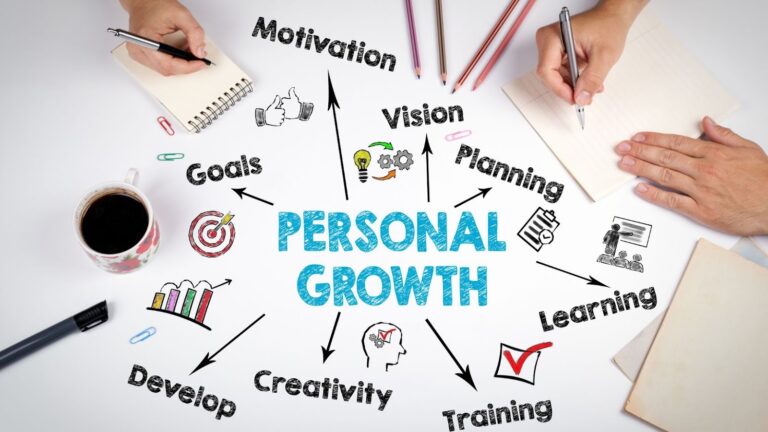
Effective Personal Development Techniques to Unlock Your Full Potential
Personal development techniques empower individuals to unlock their full potential. By adopting effective strategies, anyone can enhance their skills and achieve meaningful growth. Whether it’s setting clear goals or practicing mindfulness, these methods provide a roadmap for personal success.
In today’s fast-paced world, investing in self-improvement is more crucial than ever. With the right tools and mindset, challenges become opportunities for advancement. Embracing personal development not only boosts confidence but also fosters a sense of fulfillment and purpose.
Moreover, consistent personal development leads to lasting positive changes. By committing to continuous learning and self-reflection, individuals can navigate life’s complexities with resilience and adaptability. These techniques offer practical ways to build a better version of oneself each day.
Understanding Personal Development Techniques
Personal development techniques are structured methods individuals use to enhance their skills, knowledge, and self-awareness. These techniques enable people to achieve personal goals, improve performance, and foster overall well-being. Effective personal development involves identifying areas for growth and implementing strategies to address them.
Key personal development techniques include:
- Goal Setting: Establishing clear, achievable objectives to guide actions and measure progress.
- Time Management: Organizing tasks efficiently to maximize productivity and reduce stress.
- Mindfulness Meditation: Practicing present-moment awareness to enhance focus and emotional regulation.
- Journaling: Recording thoughts and experiences to increase self-reflection and clarify intentions.
- Continuous Learning: Pursuing new knowledge and skills through courses, reading, or training programs.
Each technique targets specific aspects of an individual’s life, leading to increased confidence, resilience, and fulfillment.
Goal Setting Strategies

Effective goal setting drives personal growth and achievement. Implementing structured strategies ensures goals are attainable and meaningful.
SMART Goals
SMART Goals provide a clear framework for setting objectives. Specific, Measurable, Achievable, Relevant, and Time-bound criteria define each goal. For example, instead of saying “exercise more,” a SMART goal is “run three times a week for 30 minutes over the next two months.” This approach increases accountability and tracks progress effectively.
Vision Boards
Vision Boards visualize goals and aspirations. They compile images, quotes, and symbols representing desired outcomes. By regularly viewing a vision board, individuals reinforce their objectives and maintain focus. For instance, someone aiming for career advancement might include pictures of professional environments, leadership icons, and motivational statements on their board.
Time Management Methods
Effective time management enhances productivity and reduces stress. Implementing proven techniques can optimize daily schedules and achieve personal goals.
Pomodoro Technique
The Pomodoro Technique divides work into 25-minute intervals, separated by 5-minute breaks. After four intervals, a longer break of 15-30 minutes follows. This method increases focus and prevents burnout by maintaining sustained concentration. Tools like timers or specialized apps help track intervals and breaks effectively.
Eisenhower Matrix
The Eisenhower Matrix categorizes tasks into four quadrants based on urgency and importance:
- Urgent and Important: Immediate action required.
- Important but Not Urgent: Schedule for later.
- Urgent but Not Important: Delegate if possible.
- Not Urgent and Not Important: Eliminate or minimize.
This framework prioritizes tasks, ensuring that critical activities receive attention while reducing time spent on non-essential duties.
Mindfulness Practices
Mindfulness practices enhance self-awareness and promote emotional regulation. They provide tools to manage stress and improve focus.
Meditation
Meditation involves focused attention and awareness to achieve mental clarity. Research indicates that regular meditation reduces stress by 30% and improves cognitive functions such as memory and concentration. Techniques include:
- Focused Attention: Concentrating on a single point, like breathing.
- Body Scan: Systematically observing sensations in the body.
- Loving-Kindness: Cultivating compassion towards oneself and others.
Consistent practice for 10 minutes daily yields significant mental health benefits.
Journaling
Journaling records thoughts and emotions, fostering self-reflection and personal growth. Studies show that individuals who journal regularly experience a 23% increase in emotional well-being. Effective journaling methods include:
- Gratitude Journals: Listing things to be thankful for each day.
- Reflective Writing: Analyzing daily experiences and lessons learned.
- Goal Tracking: Documenting progress towards personal objectives.
Implementing journaling for 15 minutes each evening enhances self-awareness and emotional regulation.
Building Positive Habits
Establishing positive habits supports continuous personal growth and achievement. Effective strategies ensure habits become ingrained and contribute to long-term success.
Habit Stacking
Habit stacking combines new behaviors with existing routines to enhance consistency. For example, adding a five-minute stretching session after brushing teeth integrates seamlessly into the daily schedule. This technique leverages established habits, making it easier to adopt new positive behaviors without disrupting the flow of the day.
Accountability Partners
Accountability partners provide support and motivation, increasing the likelihood of habit adherence. They offer regular check-ins and constructive feedback, fostering a sense of responsibility. Research shows that individuals with accountability partners are 33% more likely to achieve their goals compared to those who work alone. Partnering with someone committed to similar objectives enhances dedication and persistence.
Continuous Learning
Continuous learning drives personal growth by regularly updating knowledge and skills. It enhances adaptability and career advancement opportunities.
Online Courses
Online courses provide accessible, flexible learning across diverse subjects. Platforms like Coursera, Udemy, and LinkedIn Learning offer courses from accredited institutions. In 2023, over 70% of professionals enrolled in online courses, leading to a 25% improvement in job performance.
Benefits of Online Courses:
- Flexibility: Study at convenient times and locations.
- Variety: Choose from thousands of courses in different fields.
- Certification: Obtain credentials to enhance resumes.
Reading Routines
Regular reading routines foster intellectual growth and enhance cognitive abilities. Engaging in daily reading for at least 20 minutes can increase focus and comprehension by 18%.
- Set Goals: Define daily or weekly reading targets.
- Schedule Time: Allocate specific times for reading each day.
- Diversify Materials: Mix fiction, non-fiction, and professional literature.
- Reflect and Summarize: Take notes to reinforce learning.
Implementing consistent reading habits supports continuous personal development and knowledge expansion.
Conclusion
Embracing personal development techniques transforms life’s challenges into stepping stones for success. Consistently applying strategies like setting clear goals managing time effectively and cultivating mindfulness allows individuals to unlock their true potential. Committing to continuous learning and self-reflection fosters resilience and fulfillment. Personal growth is a lifelong journey empowering individuals to achieve their aspirations and maintain well-being. Start integrating these techniques today and watch meaningful change unfold.







